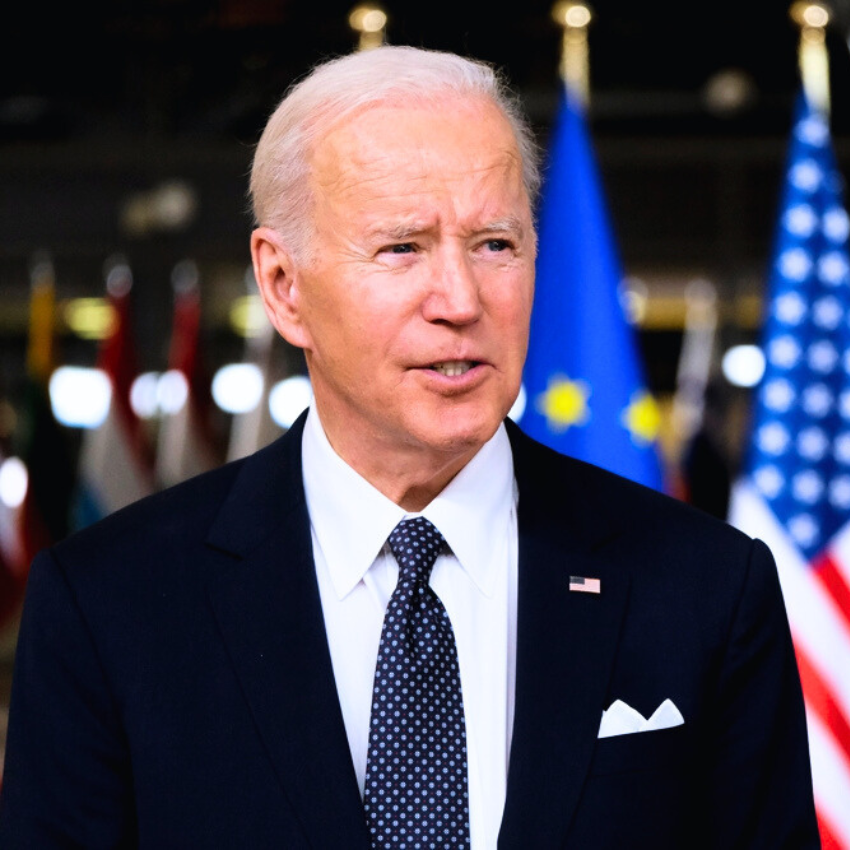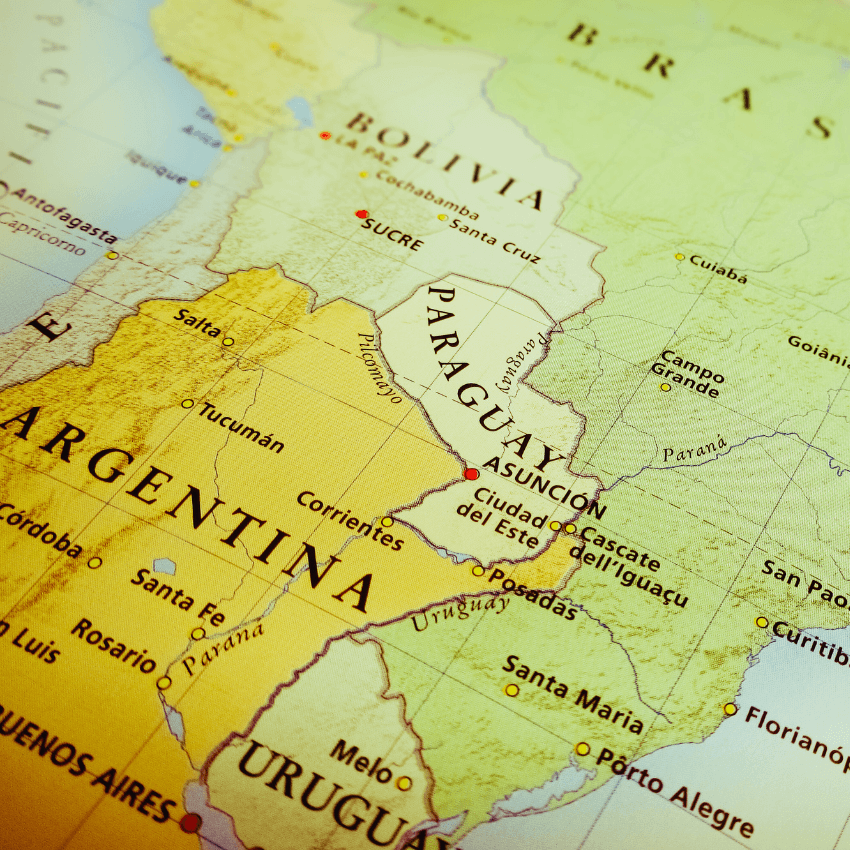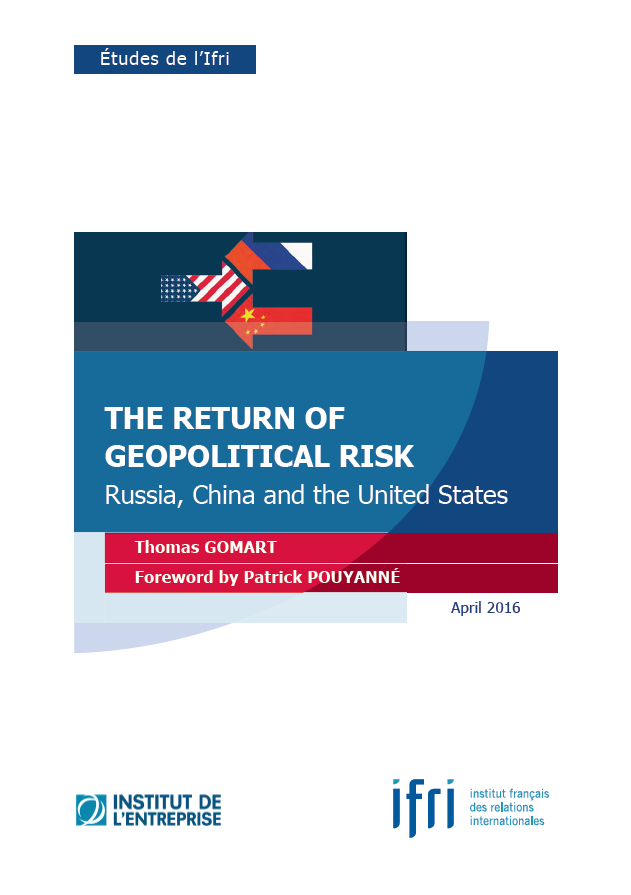Americas Program
Ifri's work on the Americas region focuses mainly on the United States. Indeed, for more than 20 years, Ifri's Americas Program has provided keys to understanding American society and domestic policy while shedding light on developments in the country's foreign policy, including transatlantic relations and trade issues.
Since 2023, a specific axis on Latin America structures more actively Ifri's research on this region.
Ifri's Canada program was active in 2015 and 2016.
Read more


Research Fellow, Head of the Americas Program, Ifri
Titre Bloc Axe
Research Areas
See all our interventions
Titre Axe de recherche
United States
The November 2020 election of Joe Biden ended Donald Trump's extraordinary tenure. However, it doesn't inevitably indicate a return to previous policies, as American society's expectations have changed. Indeed, there is a call for a strong federal state on economic and social issues on the one hand, and on the other hand an increased mistrust vis-à-vis American interventionism. The magnitude of these transformations shows how necessary is a monitoring and analysis of the ever-evolving American political landscape — especially since they resonate with comparable political developments in Europe and in the rest of the world.
Founded in 2000, Ifri's United States Program aims to understand American culture and politics from the inside. Furthermore, it studies the evolutions of the country’s foreign and defense policies. It lastly actively contributes to maintaining close trans-Atlantic ties, producing and broadcasting research on the United States in France and Europe while also regularly welcoming U.S. academics and officials to Paris.
Building on field missions and a large network of journalists, business executives, diplomats, academics and researchers from American think tanks, the program's analysis are offered in two main formats: the Potomac Papers, which are about 30 pages long notes that feature our latest research activities, and the Chroniques Américaines, which cover the country's social and political current events.The program also organizes research seminars and, since 2000, a major annual conference in December. As to inform the largest audience possible, our experts regularly intervene in the media, both in the written press and audiovisual sector. Our researchers also contribute to Ifri's main publications, Ramses and Politique étrangère. Through this program, Ifri associated with the «Time to Sign Off» (TTSO) Newsletter and Slate.fr to air the "Trump 2020" Podcast (available in French) every Wednesday from June 2019 to January 2021, focusing on the U.S. presidential elections. The partnership is renewed with the "New Deal" Podcast (also available in French) to report on U.S. current political events every Thursday.

Titre Axe de recherche
Canada
From a French standpoint, Canadian issues are often considered through Québec’s cultural and political dynamics. It would be unfortunate, however, to miss out on the benefits of the Canadian model out of a lack of interest for the country’s Anglophone regions. The uniqueness of Canada’s political institutions stems from the fact that they seek to integrate several layers of diversity: national and linguistic minorities, immigrants from diverse backgrounds and native populations. Today, the country offers an original approach on major topics such as federalism and multiculturalism.
Meanwhile, the aircraft and transportation industry, energy and mining, as well as sustainable development are key to the country’s economic prosperity, which is reflected in its international trade policy. Knowing about Canada’s economic environment is crucial, especially whilst the Comprehensive Economic and Trade Agreement is in the process of being ratified.
Canada also plays a very special role on the international scene. It was instrumental to the emergence of the concept of peacekeeping missions in the 1950’s, an idea that Canada has consistently linked to a foreign policy agenda of poverty reduction and human rights defense.
This Program was active in 2015 and in 2016.

Titre Axe de recherche
Latin America
Latin America is a resource-rich region with enormous potential for economic development. Venezuela and Mexico, for example, have essential oil reserves. Lithium, a critical material for the ecological transition, is abundant, especially in Chile, which has the largest reserve in the world with 9.2 million tons of lithium. However, this economic potential is impacted by the political situation in several states. Latin America has a long history of democratic instability and authoritarianism, and it is therefore essential to understand current political developments. This instability is also one of the primary causes of the large migration flows from Central and South American countries to the United States and Canada. For a long time, Latin America has been considered the ''backyard'' of the United States, but now it must reckon with China and Russia, which are trying to increase their influence in the region. Nevertheless, Latin America has made great strides in regional integration in recent decades, with organizations such as Mercosur, which is currently negotiating an ambitious trade agreement with the European Union. Created in 2023 as part of the Americas program, a specific research axis on Latin America allows Ifri to structure a more active research on this region, especially on energy policies but also on important democratic and geo-economic issues.

The Team

Our research fellows: Americas Program
Publications
Hillary Clinton's Email "Scandal": How Will It Affect the Election?
With the Democratic Presidential Nomination in sight, Hillary Clinton must still contend with a continuous conversation about her email practices. How will this scandal, or non-scandal, affect the presidential race yet to come? A look at the perspectives of the American constituency and pending investigations may predict Clinton's likely future... and the future of the American presidency.

The Middle East that Awaits a New US Administration
Along with a history marked by intervention from external powers, the Middle East is now confronting conflicts which combine political, ethnic and religious dimensions. The United States can not withdraw its “leadership” in the area. Aside from the Syrian question, the next American administration will have to redefine the network of partnerships and alliances in the region and grapple with a multitude of problems, none of which have simple solutions.
États-Unis : La Cour suprême en balance
The first few months of this year have been eventful and dramatic for legal and judicial matters on either sides of the Atlantic: while France renewed a third of its magistrates - which has gone largely unnoticed - US Supreme Court Justice Antonin Scalia's sudden death caused a political earthquake.
CETA: the Making of the Comprehensive Economic and Trade Agreement Between Canada and the EU
Once ratified, the Comprehensive and Economic Trade Agreement (CETA) could ultimately eliminate all tariff barriers between the European Union and Canada. CETA is also a new generation Free-Trade Agreement: it includes the opening of public procurement, the facilitation of cross investments and cooperation in the area of regulation. Its long negotiation process illustrated important changes that are happening in the way trade agreements are negotiated, both in Canada and in the EU.

The Return of Geopolitical Risk - Russia, China and the United States
The year 2014 was defined by the conflict in Ukraine, the emergence of Daesh, and tensions between China and Japan. As for 2015, it has witnessed the spread of Daesh, the conflict in Yemen, the Greek crisis, revelations about the activity of the National Security Agency (NSA), the migrant crisis, and a ramping-up of terrorist attacks.
Après Paris et San Bernardino, le terrorisme dans le débat américain
Both the Paris attacks and the San Bernardino shooting reopened the wound of terrorism in the United States. Although President Obama has not shifted his stance or his strategy on the issue, public opinion is worried and populist rhetoric is ever more present in the campaign for the 2016 election.
Can Washington move beyond "Ukraine fatigue"?
For the past two years, the United States has been at grips with an increasingly revisionist Russia in continental Europe. The crisis in Ukraine deteriorated the state of the bilateral relationship with Moscow [1] to what could be an all-time low since the end of the Cold War [2].
U.S. Engagement Towards Central Asia: No Great Game After All?
Since the collapse of the Soviet Union in the 1990s, Washington has defined general foreign policy objectives towards the Republics of Kazakhstan, Kyrgyzstan, Tajikistan, Turkmenistan, and Uzbekistan.
Sentencing Reform in the United States
Since the 1980's the incarceration rate in the United States has climbed to unprecedened levels. Today, the United States incarcerates a higher proportion of its population than any other country in the world. Activists have long called for sentencing reform, recognizing the criminal justice system's racial bias and failure to rehabilitate. President Obama's recent call to action propelled the debate on the issue forward at an unprecedented pace but will proposed reforms be enough to end mass incarceration ?
Rethinking the Confederate Legacy
The battle flag of General Robert E. Lee’s famed Army of Northern Virginia, commonly known as the Confederate Flag or the Southern Cross, has become the symbol of the 1861-1865 Southern secession and the most widespread sign of Southern regional identity. Today it can be found flying across the South and on everything from clothing to bumper stickers.
Would you like to support this Program? Contact us.
Contact us directly
Support independent French research
Ifri, a foundation recognized as being of public utility, relies largely on private donors – companies and individuals – to guarantee its sustainability and intellectual independence. Through their funding, donors help maintain the Institute's position among the world's leading think tanks. By benefiting from an internationally recognized network and expertise, donors refine their understanding of geopolitical risk and its consequences on global politics and the economy. In 2024, Ifri will support more than 70 French and foreign companies and organizations.





































